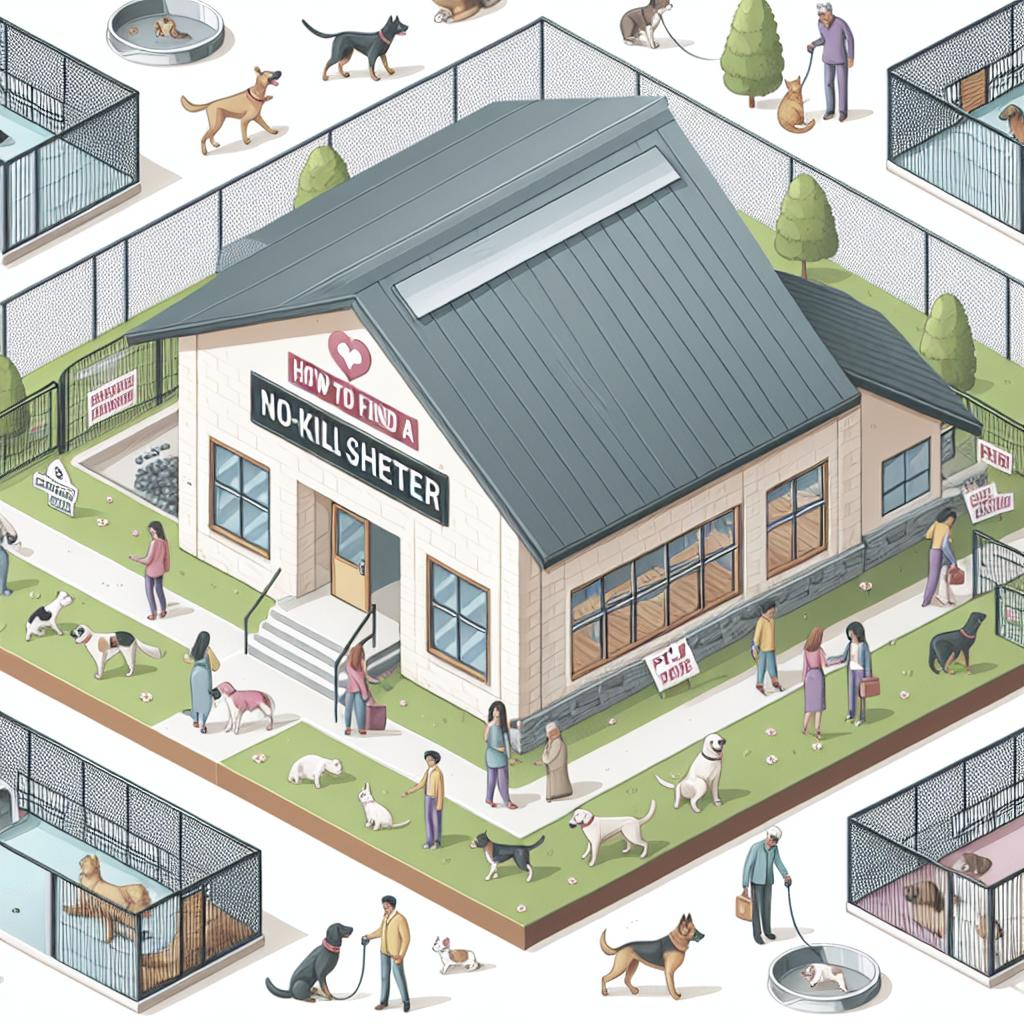<>
“`
If you’re a pet lover, the welfare of animals likely holds a special place in your heart. This comprehensive guide will help you navigate the process of finding a no-kill shelter. We’ll cover various aspects, from understanding adoption processes to resources available for lost pets and learning about community initiatives. Each sub-section is tailored to provide you with the insights and information you need to make informed decisions and contribute to animal welfare. Whether you are looking to adopt, surrender, donate, or just educate yourself about no-kill shelters, this guide is designed to answer all your questions.
Pardon Our Dust at the Lorton Campus
The Lorton Campus, renowned for its commitment to animal welfare, is currently undergoing renovations. While this might cause some temporary inconveniences, the upgrades are aimed at expanding their capacity and improving facilities to better serve animals in need. The new design will include more spacious and comfortable kennels and state-of-the-art medical facilities, ensuring that the animals receive the best possible care. During the renovation period, the shelter has made arrangements to maintain its operations smoothly. Temporary facilities have been set up, and additional staff have been employed to ensure that the quality of care and services is not compromised. Patience and understanding from the public during this time are greatly appreciated, knowing that these improvements will ultimately benefit the animals and the community.
Introducing Adoption Auditions!
Adoption Auditions are a unique initiative designed to match pets with their perfect forever homes. The idea is to allow prospective pet parents to interact with animals in a real-life setting before making the final adoption decision. This program helps both the animals and the adopters by ensuring a better match and reducing the likelihood of returned adoptions. The format of Adoption Auditions includes spending a day or two with the prospective pet, getting to know their habits, temperament, and special needs. This trial period helps in making a more informed decision and ensures a smoother transition for the pet into their new home. By fostering these meaningful connections, the shelter aims to improve long-term adoption success rates.
Adopt a Pet
Adopting a pet from a no-kill shelter is not only a charitable action but also a life-saving one. These shelters prioritize the well-being of all animals and work tirelessly to place them in loving homes. The adoption process typically includes filling out an application form, undergoing an interview, and paying a modest adoption fee. This fee usually covers initial vaccinations, spaying or neutering, and sometimes even microchipping. Shelters often have a variety of pets, including dogs, cats, rabbits, and sometimes even more exotic animals. It’s advisable to spend some time at the shelter, interacting with the animals to understand their personalities and needs. This ensures that you find a pet that complements your lifestyle and family dynamics.
Lost and Found Pets
If you’ve lost your pet, the first step is to notify local shelters, including no-kill shelters. These organizations often work closely with animal control and community networks to reunite lost pets with their owners. Many shelters have online platforms where you can post information and pictures of your lost pet for wider visibility. Conversely, if you find a stray animal, bringing them to a no-kill shelter is a compassionate choice. These shelters usually have established procedures for scanning microchips, assessing the animal’s health, and temporarily housing them while searching for their owners. Always ensure to check for identification tags and contact local authorities when you find a stray pet.
Pet Resource Center
A Pet Resource Center functions as an essential hub for pet owners, providing various services and resources. From basic veterinary care to behavioral training, these centers aim to support pet owners and improve the quality of life for pets. These shelters often collaborate with local veterinarians, trainers, and other professionals to offer comprehensive services at subsidized rates. Additionally, the Pet Resource Center can be a valuable educational resource. Workshops, webinars, and printed materials covering topics from pet nutrition to emergency care are often available, helping pet owners make informed decisions. By leveraging these resources, you can ensure your pet leads a healthy and fulfilling life.
Shelter Programs and Donations
No-kill shelters run various programs to support their operations and the community. These programs can include volunteer opportunities, foster programs, and community outreach events. Volunteering not only benefits the shelter but also offers individuals a rewarding experience and the chance to make a tangible impact on animal welfare. Financial donations are another crucial aspect that helps shelters in their mission. Many shelters operate mainly on donations and grants. Every contribution, whether monetary or in-kind, goes a long way in covering operational costs, medical care for the animals, and other necessary supplies. Some shelters also offer sponsorship programs where donors can sponsor a specific animal’s care.
Community Cats
Community cats, also known as feral cats, pose unique challenges and opportunities for shelters. These cats are generally unsocialized and not suited for indoor living. No-kill shelters often run Trap-Neuter-Return (TNR) programs aimed at controlling the community cat population. In TNR programs, cats are trapped, neutered or spayed, vaccinated, and then returned to their original location. These programs help in reducing the number of feral cats humanely and effectively. By preventing overpopulation, they also reduce the spread of diseases and improve the cats’ overall health. Community outreach and education play crucial roles in these initiatives, aiming to create a safer and more balanced environment for both the cats and the community.
Surrendering a Pet
While surrendering a pet is a difficult decision, no-kill shelters strive to make the process as smooth and responsible as possible. Shelters usually require an appointment for pet surrenders to ensure they have adequate space and resources. During this time, they will ask for detailed information about the pet’s health, behavior, and history to better understand their needs. Staff at no-kill shelters work tirelessly to find new homes or rescue organizations for surrendered pets. They are committed to providing a safe and nurturing environment while preparing these animals for adoption. If possible, shelters encourage alternatives to surrender, such as accessing pet behaviorists or rehoming networks.
Shelter Frequently Asked Questions
Understanding the functioning and policies of no-kill shelters is essential for anyone looking to engage with these organizations. Common questions often revolve around the shelter’s no-kill policy, what it entails, and how it is maintained. No-kill shelters typically have a save rate of 90% or higher, meaning they only euthanize animals for severe medical or behavioral reasons. Other frequently asked questions include details on volunteer opportunities, donor programs, adoption processes, and TNR initiatives. Shelters often have robust FAQ sections on their websites, providing clear and concise answers to these common queries. Engaging with these FAQs can offer valuable insights and help prepare you for any interactions with the shelter.
Lessons Learned
Finding and engaging with a no-kill shelter can seem overwhelming, but understanding the various aspects and services they offer can ease this process. This guide has broken down these elements to give you a comprehensive view.
| Section | Summary |
|---|---|
| Pardon Our Dust at the Lorton Campus | Discusses renovations and temporary arrangements at the Lorton Campus shelter. |
| Introducing Adoption Auditions! | Details on a unique program that allows prospective pet parents to interact with pets before adopting. |
| Adopt a Pet | Information on the adoption process and its benefits. |
| Lost and Found Pets | Guidance on what to do if you lose or find a pet. |
| Pet Resource Center | Overview of services provided for pet owners, including veterinary care and educational resources. |
| Shelter Programs and Donations | Information on volunteer opportunities, donation needs, and specific programs run by shelters. |
| Community Cats | Details on managing feral cat populations through TNR programs and community education. |
| Surrendering a Pet | Steps and information needed for responsibly surrendering a pet. |
| Shelter Frequently Asked Questions | Common questions and answers regarding no-kill shelters’ policies and operations. |
“`


